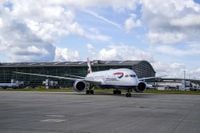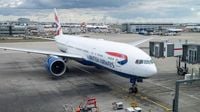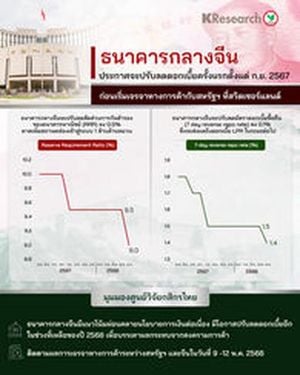British Airways' parent company, International Consolidated Airlines Group (IAG), has made a significant move in the aviation sector by committing to a massive $23 billion aircraft order. This decision comes amid concerns about a potential decline in transatlantic travel demand due to escalating global trade tensions and economic uncertainties.
In an optimistic update to investors, IAG, valued at £14 billion and listed on the FTSE 100, confirmed it remains on track to meet its €4.6 billion profit forecast for 2025. The company stated that passenger demand remains "robust" despite broader economic challenges. This announcement arrives shortly after competitors such as Lufthansa and Air France-KLM issued warnings about weakened bookings across the North Atlantic, attributing this volatility to new tariffs and macroeconomic headwinds.
“Whilst being mindful of geopolitical and macroeconomic uncertainty, our outlook for the full year is unchanged,” IAG stated in a trading update. “We are continuing to see good demand for air travel across our core markets.”
IAG’s aircraft order includes 32 Boeing 787-10 Dreamliners, valued at over £10 billion, and 21 Airbus A330-900neo aircraft, priced at approximately $6 billion. Additionally, the group has secured purchase options for 10 more 787s and 13 additional A330s, bringing the total commitment to over $23 billion at catalogue prices. However, analysts expect the final cost to be significantly lower due to the heavily discounted pricing typically associated with such bulk orders, especially as both Boeing and Airbus are currently facing production challenges.
The new aircraft will not only bolster IAG’s position on transatlantic routes but also support its low-cost subsidiary, Level, which focuses on Latin America. Furthermore, these additions will replace older aircraft that are currently operating on costly short-term leases, helping to streamline IAG’s already extensive fleet of over 600 aircraft.
However, the order has left UK-based Rolls-Royce in a tough spot. Although Rolls-Royce remains the sole engine supplier for the A330-900neo, IAG has chosen to equip its new 787s with General Electric engines, bypassing Rolls-Royce’s Trent 1000 engines, which have faced reliability issues in recent years.
IAG's fleet expansion is bolstered by a strong performance in the first quarter of 2025, a period typically challenging for airlines in the northern hemisphere. The group reported an operating profit of €198 million, nearly tripling the previous year's figure and exceeding analysts' expectations of €133 million. Revenue increased by nearly 10% to €7 billion, despite a slight dip in passenger numbers to 26.1 million. This decline reflects ongoing fare inflation across the industry, but it has been offset by robust premium cabin sales and steady demand from Latin America and Europe.
Shares in IAG remained stable at 290.6p on Friday morning, recovering some ground following a nearly 40% slump earlier this year due to trade war apprehensions. Despite the prevailing political and economic uncertainties on both sides of the Atlantic, IAG's substantial order signals a confident outlook for the long-term prospects of global travel, particularly on lucrative long-haul routes.
Analysts suggest that this order positions IAG favorably to capitalize on potential capacity gaps in the future, as both Boeing and Airbus are grappling with extended delivery timelines and a backlog of orders from rival carriers. If demand rebounds sharply in 2026 and beyond, IAG could find itself among the best-prepared legacy carriers, equipped with a younger, more fuel-efficient fleet ready to respond to market needs.
Additionally, this aircraft order coincides with a recent trade agreement between the UK and the US, which was announced on May 8, 2025. The deal, described by UK Labour leader Sir Keir Starmer as "historic," resulted in significant reductions in American import taxes on British goods, including cars and steel. US Commerce Secretary Howard Lutnick confirmed that plane engines and other aircraft parts would also be exempt from trade tariffs as part of this agreement.
Under the new trade deal, American tariffs on British cars have been reduced to 10% for the first 100,000 vehicles exported to the US, while tariffs on steel have been completely removed. This agreement has been welcomed by various sectors, including the UK steel industry, which sees it as a safeguard for jobs.
In a press conference following the announcement, Lutnick remarked that the agreement would create $5 billion in export opportunities for American products. He noted that an unnamed British airline had agreed to purchase $10 billion worth of Boeing planes as part of the trade deal. Although IAG did not disclose the exact amount paid for the aircraft in its announcement, the implications of the trade agreement are clear.
Chief Executive Luis Gallego characterized the order as a "milestone" for IAG, emphasizing its potential to strengthen core markets over the next decade. He stated, "We continue to see resilient demand for air travel across all our markets, particularly in the premium cabins and despite the macroeconomic uncertainty."
Despite some recent softness in economy ticket sales among US holidaymakers, IAG has reported strong demand for premium tickets, which has helped mitigate the impact of this downturn. As the summer holiday season approaches, typically IAG's busiest period, analysts anticipate further boosts to earnings as bookings remain robust.
Mark Crouch, a market analyst for eToro, highlighted the importance of IAG's ability to navigate geopolitical challenges and maintain its trajectory of cash generation and sustainable growth. As of May 9, 2025, IAG shares have risen by approximately 58% over the past year, reflecting growing investor confidence.
In summary, IAG's ambitious aircraft order aligns with a positive financial outlook and a newly forged trade agreement, suggesting a promising future for the airline as it adapts to the evolving landscape of global travel.





